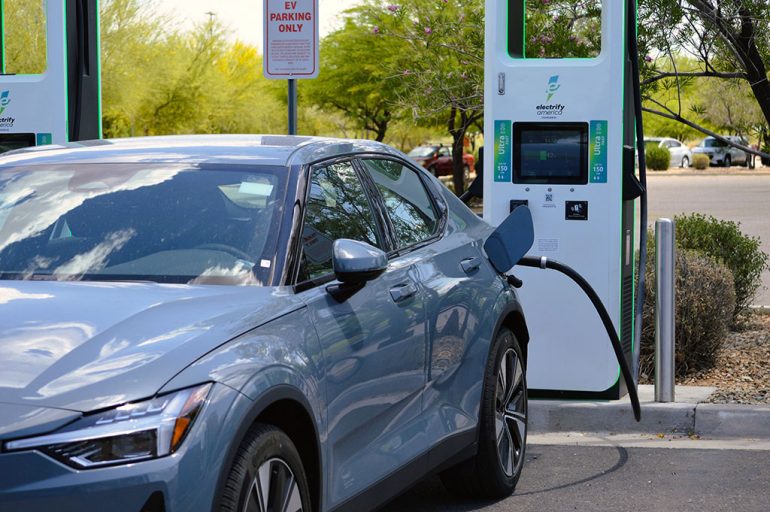
Getting a $7,500 tax credit for purchasing an electric vehicle (EV) is set to become a quicker and more accessible process, thanks to changes in the tax incentive system. Starting in January, prospective EV buyers won’t have to wait until tax season to reap the benefits of this tax credit; they will receive it as cash on the day of purchase, regardless of their tax bill size.
The impetus for this change came from Congress as part of the Inflation Reduction Act, aiming to make electric vehicles more appealing by simplifying the credit process. Initially, the credit was tied to the annual tax filing process, making it somewhat burdensome. This delay was attributed to the Internal Revenue Service (IRS) needing time to develop a new system for point-of-sale rebates.
The new system is designed to streamline the process for both EV buyers and automakers. While the eligibility criteria for the tax credit remain in place, including income limits and price restrictions, the process of claiming the credit will now involve a bit of extra paperwork at the dealership instead of a protracted wait during tax season.
Dealerships will register with the IRS to confirm a vehicle’s eligibility for the tax credit using the vehicle identification number, alleviating a major concern for buyers who previously had to navigate complex and ever-changing rules to determine if their chosen EV qualified.
One significant advantage of this system is that buyers can opt to receive the credit instantly, foregoing the wait for the following year’s tax return. Buyers who meet the individual requirements can transfer the tax credit to the dealership, which will then either provide them with cash or apply it as a down payment toward the vehicle. The dealer will subsequently submit documentation to the IRS, with the IRS committing to prompt reimbursement, typically within 72 hours. Importantly, buyers can receive the credit regardless of their annual tax liability, eliminating the previous requirement of owing $7,500 in taxes to benefit fully from the credit.
The system also extends to tax credits for used electric vehicles, amounting to 30% of the vehicle’s price, up to $4,000. These credits will also be available at the point of sale, subject to a lower income cap and additional criteria.
Despite these improvements, there are safeguards in place to prevent fraud and ensure that dealerships are current on their taxes. Additionally, taxpayers may need to repay the credit if they later find that their income exceeded the eligibility cap in both the current and previous years.
The income limits for new vehicles are $150,000 adjusted gross income for individuals, $225,000 for heads of households, and $300,000 for married couples filing jointly or surviving spouses. For used vehicles, the income caps are $75,000 for individuals, $112,500 for heads of households, and $150,000 for married couples filing jointly or surviving spouses.
While the government continues to encourage EV adoption and incentivize car companies to shift supply chains to the U.S., these changes should make the tax credit process less confusing and more immediate for consumers. Elizabeth Krear, the vice president of the electric vehicle practice at JD Power, believes that this alteration will have a significant impact, simplifying the process and providing buyers with $7,500 at the time of purchase, rather than requiring them to wait for a tax rebate.

Mike Floyd is a finance executive by trade and a car enthusiast at heart. As a CFO with a keen eye for detail and strategy, Mike brings his analytical mindset to the automotive world, uncovering fresh insights and unique perspectives that go beyond the surface. His passion for cars—especially his favorite, the Porsche 911, fuels his contributions to Automotive Addicts, where he blends a love for performance and design with his professional precision. Whether he’s breaking down industry trends or spotlighting emerging innovations, Mike helps keep the site both sharp and forward-thinking.